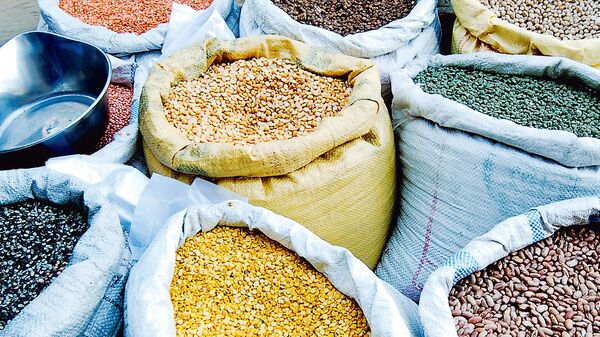DelhiDesk The Indian government has urged pulses traders, particularly those dealing in tur and urad, not to hold imported stocks beyond one month from the date of customs clearance to alleviate the current surge in prices. The industry is experiencing a current tight supply of the pulses crop and estimates tur production to be between 2.5-2.8 million tonnes; however, the government’s second advance estimates predict an output of 3.6 million tonnes. The government has also directed states to ensure stock disclosure by importers on the consumer affairs department’s portal every Friday and take action against entities not disclosing their stocks regularly. India imports most of its tur dal from Myanmar and East African nations and urad dal mostly from Myanmar and the UAE.
Follow DelhiBreakings on Google News
Here is the news bullets sorted by DelhiBreakings.com team.
👉 The government has asked pulses traders not to hold imported stocks beyond one month from custom clearance.
👉 Tur prices have skyrocketed amid tight supply in the domestic market.
👉 Lower production of pulses crop in 2022-23 has led to an upward trend in prices.
👉 Indian import companies have reportedly hoarded around 100,000 tonnes of tur and about 500,000 tonnes of urad in Myanmar.
👉 Tur and urad account for two-thirds of the total kharif pulses production and have a share of over 70% in India’s pulses import basket.
👉 The Center has directed states and union territories to ensure stock disclosure by importers every Friday and be strict with those holding stocks beyond 30 days from customs clearance.
👉 The Department of Consumer Affairs formed a committee to monitor the stock of tur held by importers, millers, traders, and other entities.
👉 Indian imports most of its tur dal from Myanmar and East African nations, while urad dal is mostly purchased from Myanmar and to some extent from United Arab Emirates.
For superfast news and Delhi Breaking Stories visti us daily at https://delhibreakings.com

